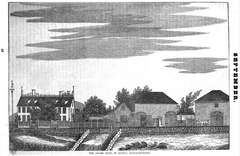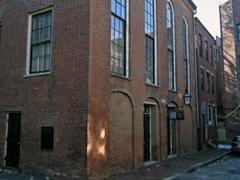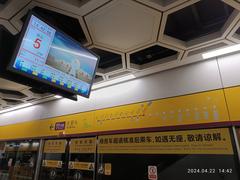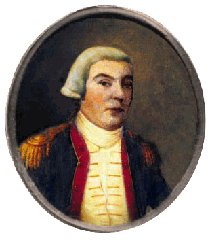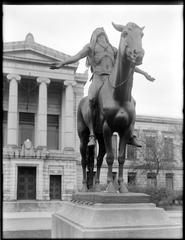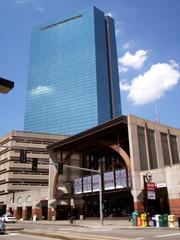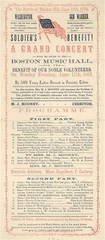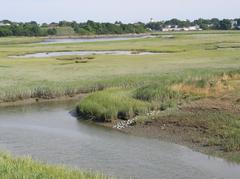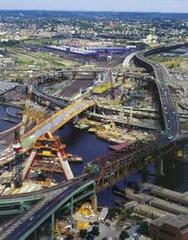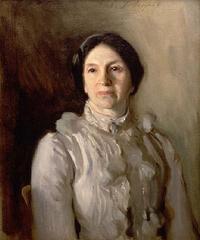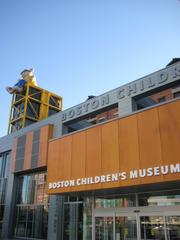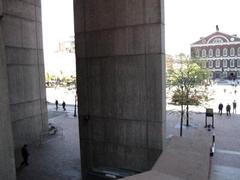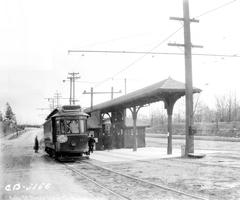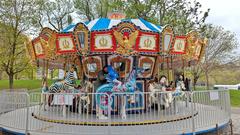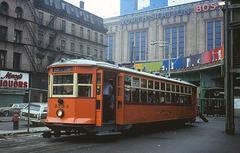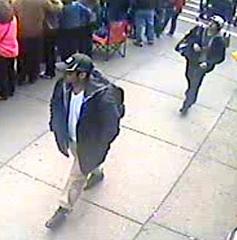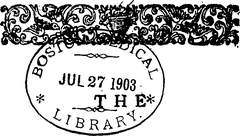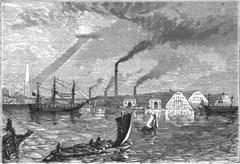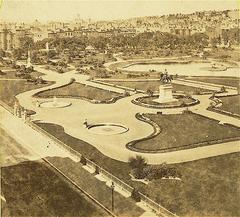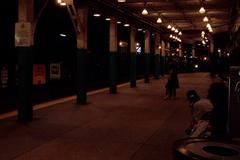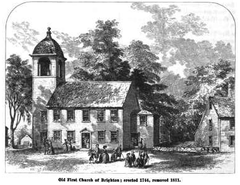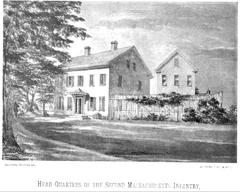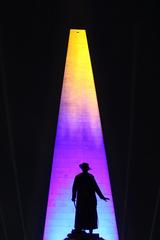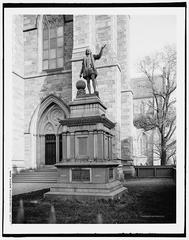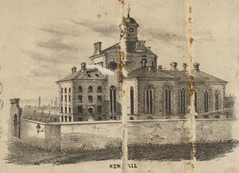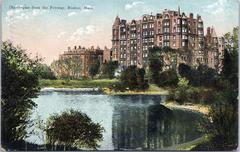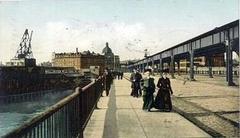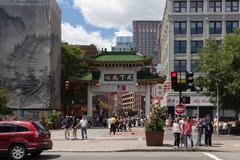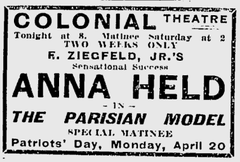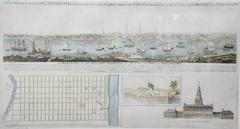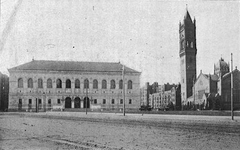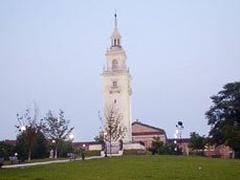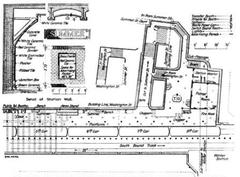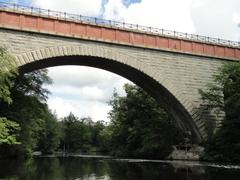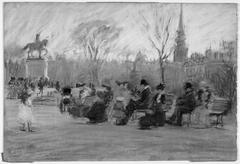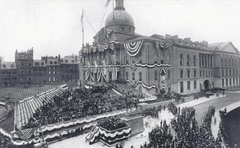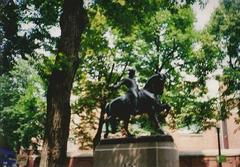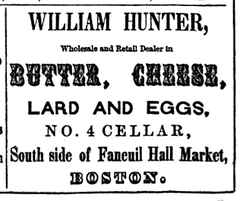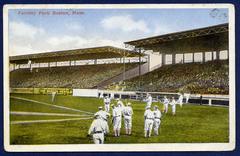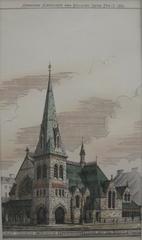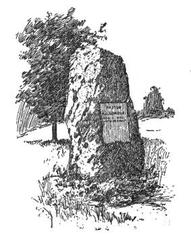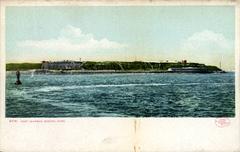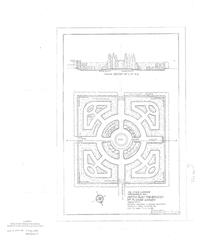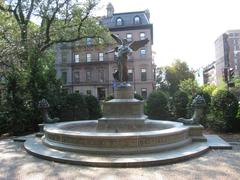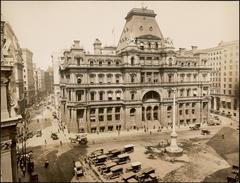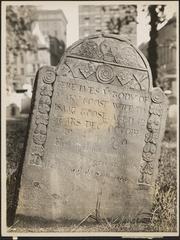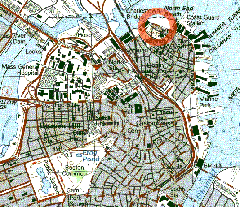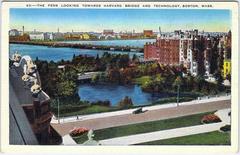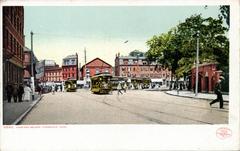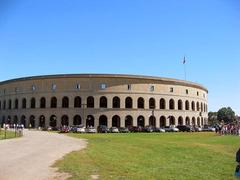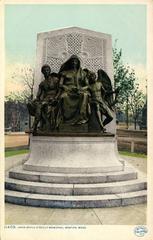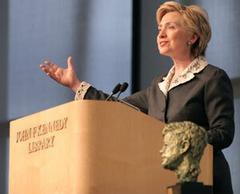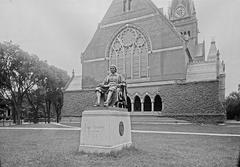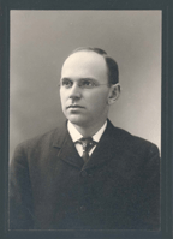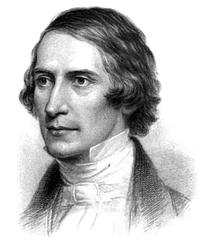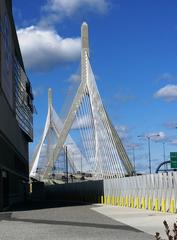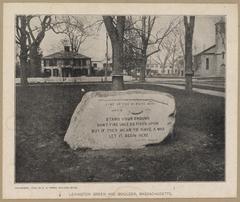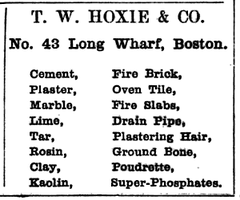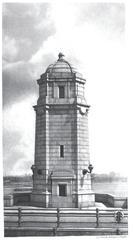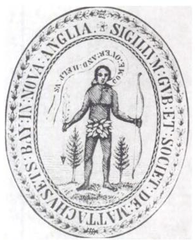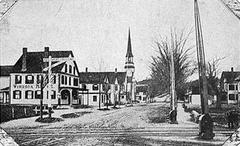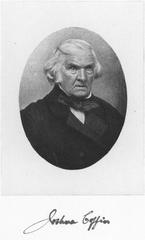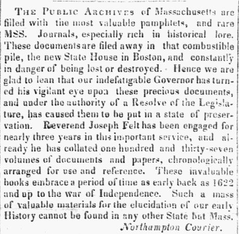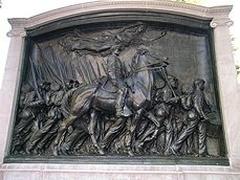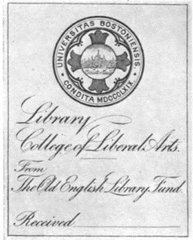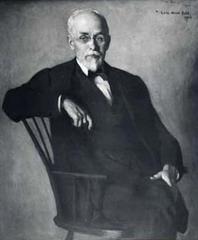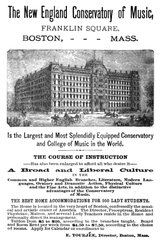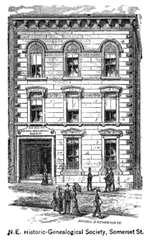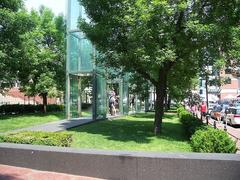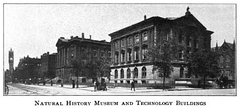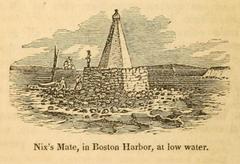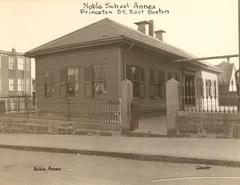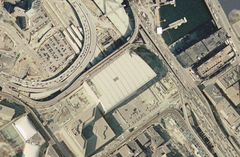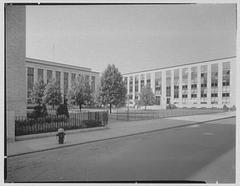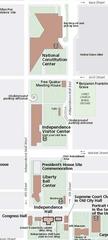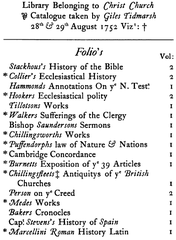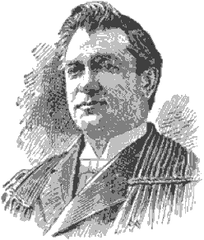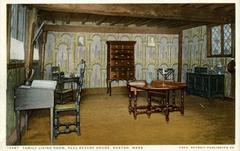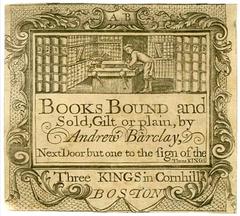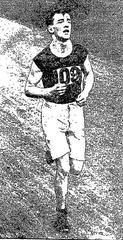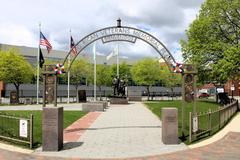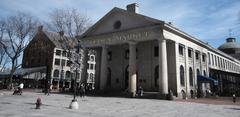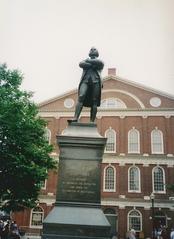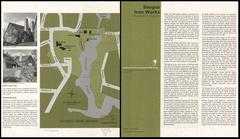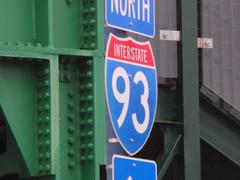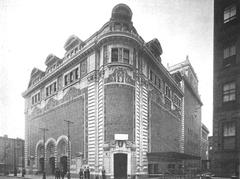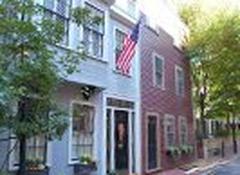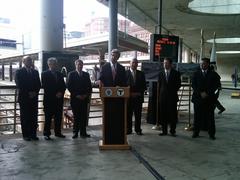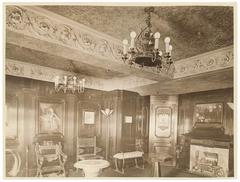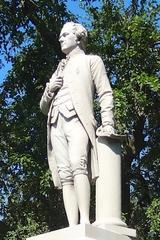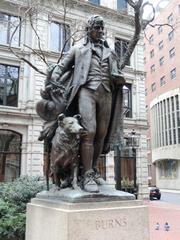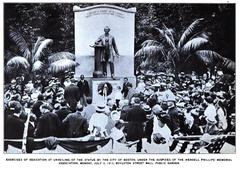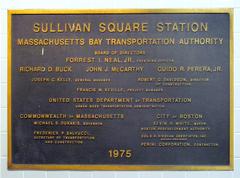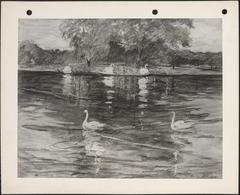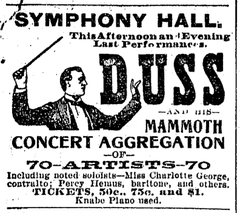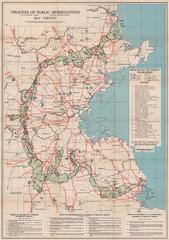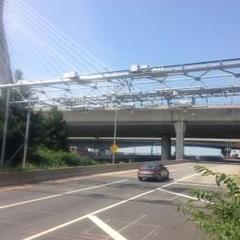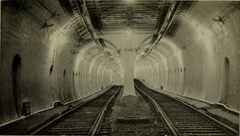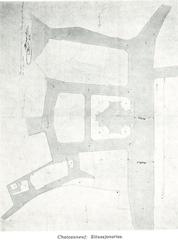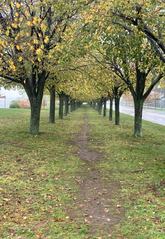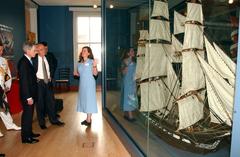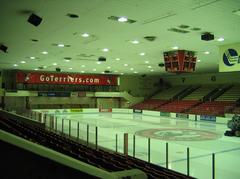
Democratic Donkey Boston Visiting Hours, Tickets, and Tourist Guide
Date: 04/07/2025
Introduction
Boston’s Democratic Donkey sculpture is more than a whimsical urban fixture—it is a powerful emblem that encapsulates the city’s deep political heritage and vibrant public art scene. Standing in prominent locations such as the Old City Hall along the famed Freedom Trail and near the Boston Convention & Exhibition Center, this life-sized bronze statue offers an interactive experience that connects visitors to centuries of American democratic tradition. This comprehensive guide covers everything you need to know: from historical context and artistic features, to visiting hours, accessibility, travel tips, and recommended nearby attractions.
Table of Contents
- Introduction
- The Democratic Donkey Sculpture: Overview & Significance
- Location and Accessibility
- Visiting Information: Hours & Admission
- Tickets, Tours, and Special Events
- Nearby Attractions and Suggested Itineraries
- Historical Context: The Donkey as a Political Symbol
- Artistic and Architectural Context
- Visitor Experience: Tips & Etiquette
- Community Engagement and Cultural Impact
- Sustainability and Responsible Tourism
- FAQ
- Summary Table: Key Visitor Information
- Conclusion and Recommendations
- References and Further Reading
The Democratic Donkey Sculpture: Overview & Significance
The Democratic Donkey is a striking public art installation and a celebrated symbol of the Democratic Party. Its presence in Boston, a city synonymous with America’s political evolution, bridges the gap between past and present while inviting dialogue about civic participation. Whether situated near the Boston Convention & Exhibition Center (Boston Globe) or Old City Hall on the Freedom Trail (Atlas Obscura), the sculpture is an accessible and engaging touchpoint for locals and visitors alike.
Symbolic Roots
The donkey has represented the Democratic Party since the early 19th century, originating with Andrew Jackson’s 1828 presidential campaign and further cemented by Thomas Nast’s influential political cartoons in the 1870s (WorldAtlas; CNN). In Boston, the sculpture links this national symbol to the city’s own history of political activism and civic leadership (Meet Boston).
Artistic and Multicultural Dimensions
Crafted in Florence, Italy, the statue blends European artistry with American symbolism, reflecting Boston’s immigrant heritage and international connections (Boston Preservation Alliance). Its approachable design invites interaction—visitors often touch or take photos with the donkey, making it one of Boston’s most beloved and photographed public artworks.
Location and Accessibility
Primary Location:
- Old City Hall, 45 School Street, Boston, MA (adjacent to the Freedom Trail)
- Also featured near the Boston Convention & Exhibition Center, 415 Summer St, Boston, MA 02210
Getting There:
- Accessible via MBTA Green and Orange Lines (Park Street or Government Center stations)
- Easily walkable from major historical sites such as Boston Common, Faneuil Hall, and Quincy Market
- Rideshare and taxi drop-offs available on School Street and Summer St
Accessibility:
- Wheelchair-accessible sidewalks and paved plazas
- Some uneven brickwork typical of Boston’s historic areas, but overall easy to navigate for most visitors
Visiting Information: Hours & Admission
- Hours: Open 24/7 as an outdoor public art installation. Daylight visits (9:00 AM – 6:00 PM) are recommended for safety, optimal lighting, and guided tours.
- Admission: Free. No tickets or reservations required.
- Guided Tours: The Democratic Donkey is included in many Freedom Trail and political history tours, which can be booked through local operators and visitor centers (Meet Boston).
Tickets, Tours, and Special Events
- Tickets: Not required; the sculpture is freely accessible at all times.
- Guided Tours: Multiple operators offer walking tours that include the Democratic Donkey as a highlight. These tours provide in-depth context about Boston’s political history and public art (Nomadic Matt).
- Special Events: The statue is often a gathering point during election seasons, major conventions, and civic celebrations. Check event calendars for art walks and political rallies.
Nearby Attractions and Suggested Itineraries
- Freedom Trail: Steps from the Democratic Donkey, this 2.5-mile route connects 16 historic sites (Nomadic Matt).
- Boston Common: Ideal for relaxing or a picnic, just a short walk away.
- Faneuil Hall and Quincy Market: Bustling food and shopping destinations within a 10-minute stroll.
- Boston Tea Party Ships & Museum, Paul Revere House, and Old State House: Enhance your day by visiting these key historical sites nearby.
Historical Context: The Donkey as a Political Symbol
Origins and Popularization
The donkey’s association with the Democratic Party began during Andrew Jackson’s 1828 campaign, when critics labeled him a “jackass.” Jackson adopted the symbol, turning it into a badge of determination. The animal became firmly linked to the party thanks to Thomas Nast’s 1870s cartoons, which lampooned and ultimately popularized the donkey as a stand-in for Democratic ideals (WorldAtlas; CNN).
Boston’s Political Landscape
Old City Hall, the site of the sculpture, was Boston’s seat of government from 1865 to 1970—a period marked by dominant Democratic leadership (Atlas Obscura). The donkey thus celebrates both national and local political legacies.
Dual Symbolism
While critics have used the donkey to suggest stubbornness, Democrats have embraced its qualities of perseverance and humility. The party has never formally adopted the donkey as its official symbol, yet it remains a ubiquitous and enduring mascot (CNN).
Artistic and Architectural Context
- Material: Bronze, chosen for durability and historical resonance
- Design: Life-sized, dynamic posture with expressive features to encourage engagement
- Artistic Details: Star motif on the flank connects to the American flag and Democratic identity
- Setting: Positioned in open plazas for 360-degree viewing and interaction; surrounded by colonial and Federalist architecture, blending past and present (New England and Beyond)
Visitor Experience: Tips & Etiquette
What to Expect
- A lively, interactive statue inviting photo opportunities and conversation
- Proximity to Republican Elephant footprints—an invitation to reflect on civic dialogue and dissent
- A vibrant atmosphere with nearby cafes, street performers, and historic surroundings
Practical Tips
- Best Time to Visit: Early morning or late afternoon for optimal lighting and fewer crowds
- Photography: The sculpture’s patinated bronze surface shines where touched—experiment with angles for creative shots
- Amenities: Public restrooms and seating are available nearby at Boston Common and Faneuil Hall
- Food & Shopping: Numerous options within a five-minute walk, especially at Quincy Market
Etiquette
- Be respectful—avoid climbing or sitting on the sculpture to preserve it for future visitors
- Political discussions are welcome, but public decorum is appreciated
- Tipping guides on walking tours is customary (Nomadic Matt)
Community Engagement and Cultural Impact
The Democratic Donkey is a catalyst for education, civic engagement, and intergenerational dialogue. Local schools and universities use the statue as a teaching tool, while artists and activists occasionally stage installations or events at the site. The nearby Republican Elephant footprints (“Stand in Opposition”) further encourage visitors to consider the importance of dissent and dialogue in democracy (Atlas Obscura).
Sustainability and Responsible Tourism
- Walk or use public transit between attractions
- Bring a reusable water bottle—Boston’s tap water is excellent (Nomadic Matt)
- Support local businesses and dispose of litter responsibly
- Participate in citywide recycling and sustainability initiatives
FAQ
Q: Where is the Democratic Donkey sculpture located?
A: At Old City Hall, 45 School Street, Boston, MA, and near the Boston Convention & Exhibition Center, 415 Summer St.
Q: What are the visiting hours?
A: The sculpture is outdoors and accessible 24/7. Daylight hours are recommended for safety and photos.
Q: Is there an admission fee or ticket required?
A: No, the sculpture is free and open to the public.
Q: Is the site wheelchair accessible?
A: Yes, though some brickwork may be uneven.
Q: Are guided tours available?
A: Yes, many Freedom Trail and political history walking tours include the Democratic Donkey.
Q: Can I take photos with the sculpture?
A: Absolutely, and it’s encouraged!
Summary Table: Key Visitor Information
| Feature | Details |
|---|---|
| Location | 45 School Street (Old City Hall), and 415 Summer St, Boston, MA |
| Accessibility | Wheelchair accessible, public transit nearby |
| Hours | Open 24/7, best visited daylight hours |
| Admission | Free, no tickets required |
| Nearby Attractions | Freedom Trail, Boston Common, Quincy Market, Old State House |
| Best Time to Visit | Early morning/late afternoon, spring or fall |
| Safety | Generally safe, standard urban precautions |
| Amenities | Food, restrooms, seating nearby |
| Photography | Popular spot, best during golden hour |
| Tours | Included in many walking tours |
Conclusion and Recommendations
The Democratic Donkey is a quintessential Boston landmark—an intersection of art, politics, and public engagement. Its central location, free access, and lively atmosphere make it a must-visit for anyone exploring the city’s historic downtown. Whether you’re a political history enthusiast, art lover, or casual visitor, the Democratic Donkey offers a memorable opportunity to connect with America’s democratic legacy.
For an enhanced experience, download the Audiala app for curated audio tours and up-to-date event information. Explore related articles on our site, and follow us on social media to share your Democratic Donkey moments and stay informed about Boston’s vibrant cultural scene.
References and Further Reading
- Boston Globe: Donkeys Around Town
- WorldAtlas: Why is the Donkey a Symbol of the Democratic Party?
- CNN: Why Democrats Are Donkeys, Republicans Are Elephants
- Atlas Obscura: Democratic Donkey and Republican Footprints
- Boston Preservation Alliance: Roger Webb and the Democratic Donkey
- Meet Boston: Visitor Guide
- New England and Beyond: Ultimate Guide to Boston for First-Time Visitors
- Lonely Planet: Things to Know Before Traveling to Boston
- Nomadic Matt: Boston Travel Guide

